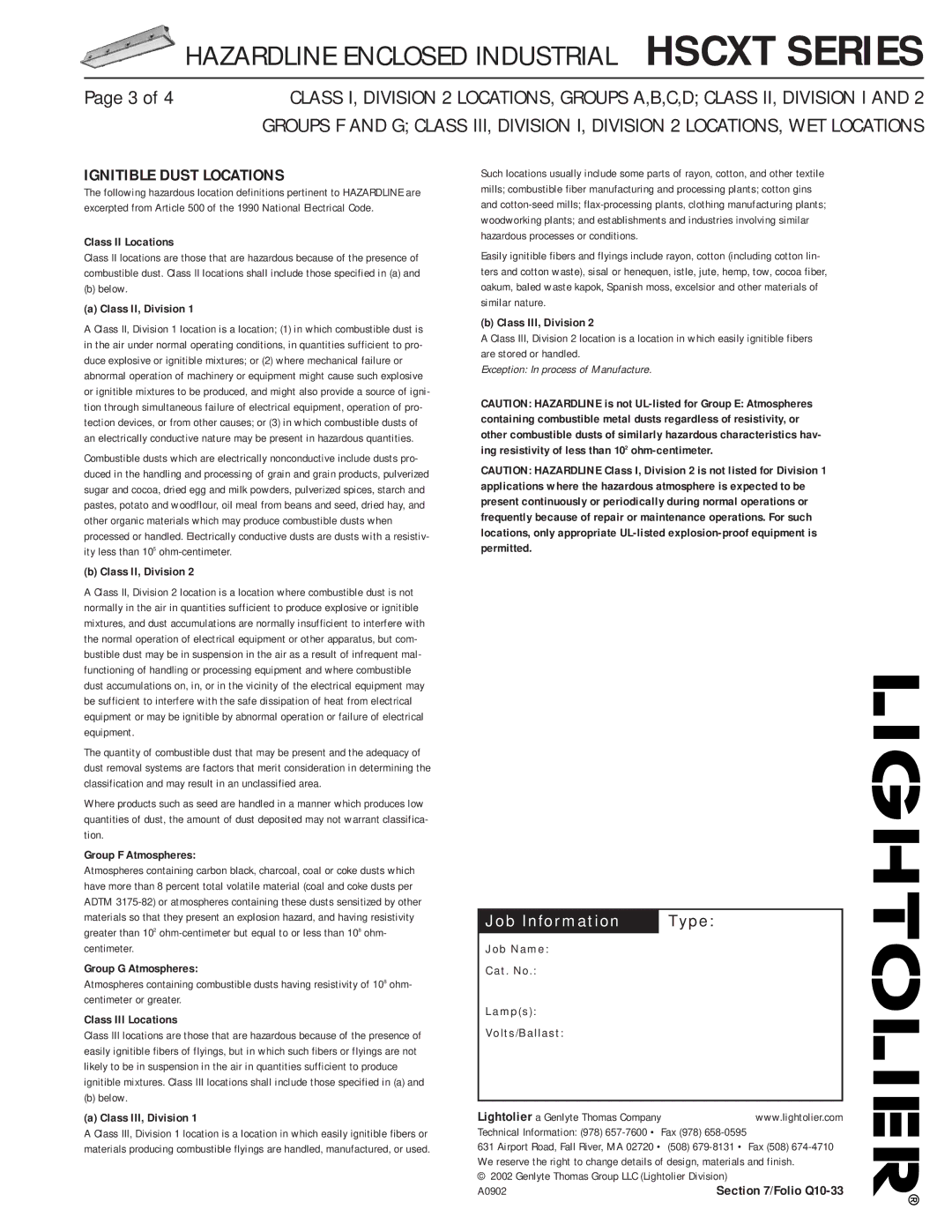HSCXT Series specifications
Lightolier HSCXT Series is a cutting-edge lighting solution designed to meet the demands of modern spaces while emphasizing energy efficiency and versatility. This series showcases a range of features that cater to both commercial and residential applications, ensuring optimal functionality without compromising on aesthetics.One of the standout characteristics of the HSCXT Series is its energy-efficient LED technology. These fixtures provide significant energy savings compared to traditional lighting sources, contributing to lower utility bills and a reduced carbon footprint. The HSCXT Series is engineered with innovative LED drivers that optimize performance and prolong the lifespan of the fixtures, making them a cost-effective choice in the long run.
In addition to energy savings, the HSCXT Series boasts a high lumen output, delivering bright, consistent illumination across various spaces. Its exceptional color rendering index (CRI) ensures that colors appear true to life, enhancing the overall ambiance of both commercial and residential environments. This makes the series ideal for retail settings, galleries, and even home spaces where accurate color representation is crucial.
Flexibility is another key feature of the HSCXT Series. The fixtures are available in multiple configurations and sizes, enabling designers and architects the freedom to create customized lighting solutions tailored to specific needs. Whether installed in a grid layout, recessed, or surface-mounted, these fixtures blend seamlessly into any ceiling or architectural design.
Moreover, the HSCXT Series incorporates advanced control technologies, including compatibility with various dimming systems and smart controls. This functionality allows for tailored lighting experiences, where users can adjust brightness levels and create dynamic lighting scenes to enhance the mood of any space. Integration with building automation systems further maximizes efficiency and convenience, aligning with the growing trend toward smart building designs.
Durability and quality are also prominent features of the Lightolier HSCXT Series. Built with high-quality materials, these fixtures are designed to withstand the rigors of use while maintaining aesthetic appeal. Their sleek, minimalist design ensures they complement a wide range of interior styles, from contemporary to traditional.
In summary, the Lightolier HSCXT Series stands out as an innovative lighting solution that combines energy efficiency, versatility, and advanced control technologies. With its exceptional performance and customizable features, it addresses the needs of modern spaces while providing opportunities for creative design and sustainability.

